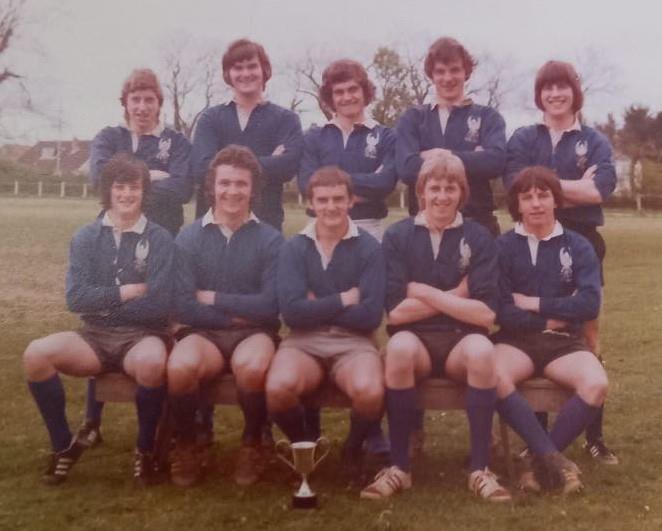Former Wales and British Lion Peter Morgan has died
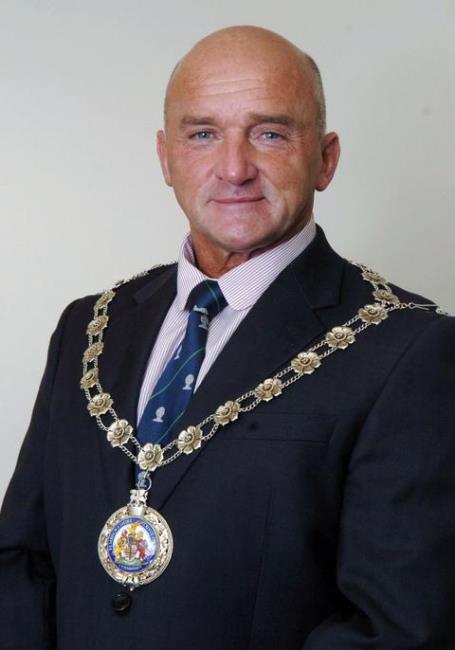
Former Wales and British Lion Peter Morgan has died, aged 65, after battling a brain tumour,
writes former Head of BBC Sport, Geoff Williams.
Morgan toured South Africa with The Lions in 1980 and captained Llanelli to victory over Australia in 1984.
He created a sensation in his first season in senior rugby when he broke into the Wales squad as a teenager.
As a utility back, uniquely, he played in every three-quarter position for both Wales and the Lions. He played for Wales five times.
Peter John Morgan was born at The County Hospital in Haverfordwest on January 1, 1959. He was the outstanding athlete of his generation at the local County Secondary School and excelled under the tutelage of sports master, Peter Herbert - who himself progressed to Llanelli & Wales as a fitness coach.
Morgan won a Welsh youth cap at St Helens, Swansea in 1977 against a France side featuring an emerging Serge Blanco, but a broken ankle robbed him of the vice-captaincy and more caps the next season.
With a Beatle haircut & Mediterranean tan, able to play at fly-half and centre, he learned from being in the same club set-up as Phil Bennett and displaced the ageing Wales & Lions centre, Roy Bergiers.
In a mercurial rise, Morgan produced a scintillating performance for Wales B against France B at The Talbot Athletic Ground, Aberavon prompting rave reviews from Barry John in his Daily Express Column.
The Welsh coach, John Dawes regarded him as a precocious talent and he replaced the retired JPR Williams at fullback in a full strength Wales XV against Romania at the National Stadium in October 1979. Wales won the fixture 13-12.
Morgan was a pacy, skillful, fitness fanatic and top seven-a-side practitioner. He captained Llanelli to victory in the annual Snelling Sevens alongside his brother, Anthony in 1979, winning the Bill Everson Award for the man of the tournament.
Ironically, it was at an earlier event, the summer Aberaeron Sevens in Cardiganshire, that Scarlet talent scouts head hunted him after he led his home town to a shock win over Llanelli virtual single handedly.
Ex Wales and Lions legend, JJ Williams recalled in his autobiography: "I can vouch for the fact that it was a pleasure to play outside him even if I couldn't understand a word he spoke in his Pembrokeshire dialect."
He toured with the Barbarians in Wales the following Easter and was named Wales Most Promising Rugby Player by the Welsh Rugby Writers' Association.
At the turn of the decade, the national game went into decline after the glory years of the 70s.
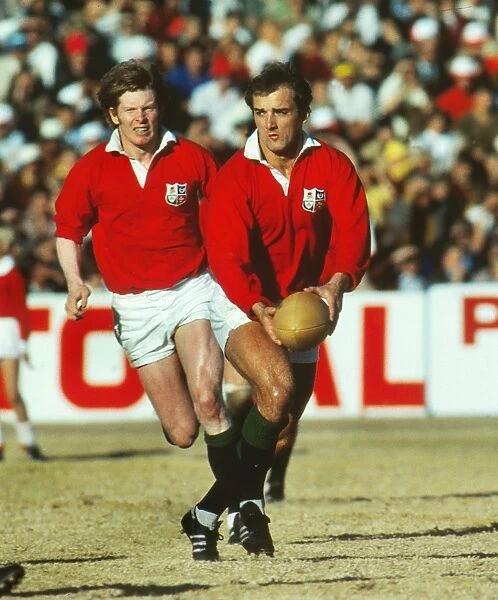
Morgan won his first Five Nations cap as replacement centre in front of his Majesty The King - then the Prince of Wales - on St Davids Day, 1980 in a 17-6 victory over Scotland. His full debut, at outside half, followed against Ireland at Lansdowne Road two weeks later when he had an uncomfortable afternoon after a charge down and try by Cieran Fitzgerald in a 21-7 defeat. But, by then he'd already done enough to earn his Lions place - all at the age of twenty one.
The tour went ahead in the face of opposition from the British Government and groups opposed to sporting contact with the apartheid regime. The squad captain was Bill Beaumont, the current chair of World Rugby.
As the baby of the party, Morgan was nicknamed Fagin after the fictional villain in Charles Dickens' novel, Oliver Twist because of his financial nouse and nose for a bargain.
The tour was not a success for the Lions, who lost the Test series 3-1, but won all their provincial encounters. Morgan played in seven fixtures.
Carwyn James, the legendary 1971 Lions coach said: "Peter was the infant of the party in years, but more gifted than most. He had to carry the utility tag. Utility players fill gaps, and on the 1980 tour there were few gaps for him to fill, yet one of the severest criticisms of the management is that they neglected him."
Shortly afterwards, Morgan turned down a then world record fee of £300,000 from St Helens to turn professional and play rugby league.
He won the last of his caps against Ireland at the National Stadium in 1981, replacing Steve Fenwick. Wales were victorious 9-8, but Morgan was forced to retire with broken ribs after a heavy tackle by his opposite number, David Irwin. retrieving a wayward pass from Gary Pearce.
As a schoolboy, he stood on the tanner bank with the miners and steelworkers to witness Llanelli's famous win over the All Blacks at Stradey Park on October 31, 1972. That laid the foundation for his ambition to pull on the scarlet shirt later in life and he went on to captain the club to a victory over Australia on November 20,1984.
The Wallabies were the first and only Australian side to achieve a Grand Slam in the four tests against the Home nations. The Scarlets achievement, on a sodden pitch, was all the more remarkable because they were shorn of their internationals ahead of the upcoming Wales test match in Cardiff four days later. The Morgan/Gravell centre partnership was world class. Wales subsequently lost 9-28.
The tour is regarded as highly significant as it is seen as confirmation of Australia's coming of age as a world-class rugby nation, marking the end of three difficult decades of inconsistent performances from the 1950s onwards.
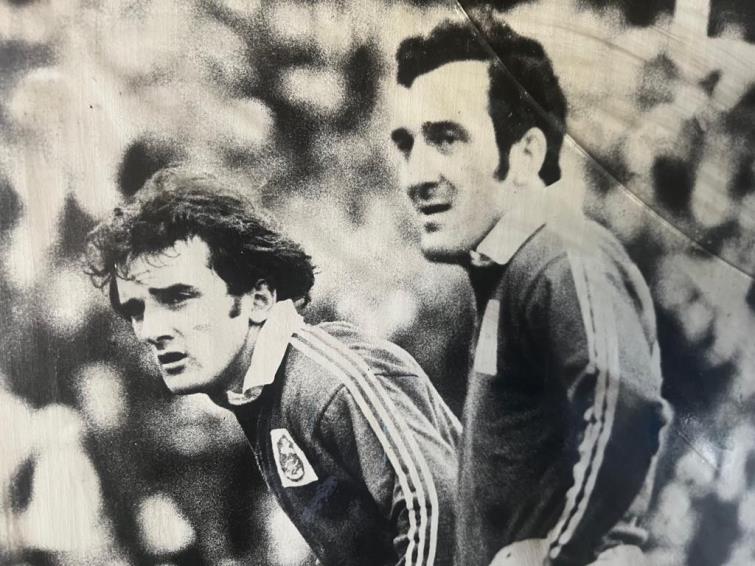
Former Wales and Lions icon, Phil Bennett said: "Peter was shy but gutsy with accurate kicking out of hand; fine distribution skills and ability to cut defences to shreds. He suffered setbacks at vital stages in his career and was unlucky not to have won many more caps."
Morgan represented Pembrokeshire at every level from schools to senior rugby. He captained Haverfordwest youth under the tutelage of Dai Miller and, later, Trevor James. He was sent off just once in his career for swearing in a schoolboy fixture against the local grammar school. Ironically, the sports master referee was Brian Thomas, himself an ex Llanelli second row and captain. Morgan had the last laugh when, ignominiously, the grammar school was forced to borrow him to bolster resources for its prestigious annual fixture against Christ College Brecon public school.
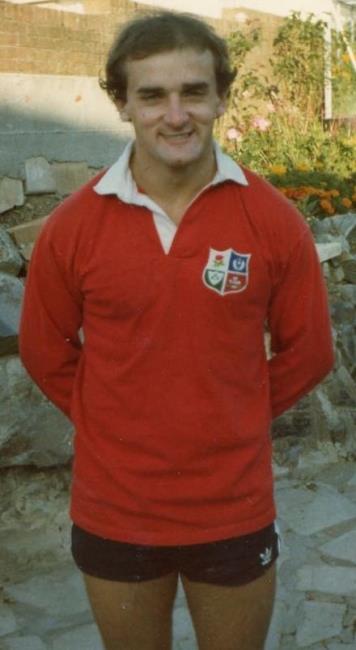
His ex class teacher and former county senior coach, Tony Philpin said: "He was a man amongst boys at age group level, dismantling teams on his own, It was a social injustice that he never won a schoolboy cap in my view, the best player ever produced by Pembrokeshire."
Morgan played in Llanelli's WRU Challenge Cup 15-14 victory over Cardiff in 1985 but his career was cut short by a broken leg in a local derby against Swansea. Although he returned to action after a year out, his best days had gone.
As Chairman of the International Rugby Board, Vernon Pugh announced in August 1995 that rugby union was becoming open and abandoning its most cherished principle, that of not paying anyone for playing a part in the game. Pugh described amateurism as a dam which could no longer hold back water.
Morgan welcomed remuneration but was contemptuous of journeymen players and coaches who sacrificed allegiance to jump from club to club simply for money.
He received the Sport Pembrokeshire Lifetime Achievement Award in 2013.
Ahead of retirement, Morgan capitalized on his entrepreneurial skills establishing a fresh food delivery business to hospitality outlets in Pembrokeshire before setting up a coal and aggregate supply company.
He also entered local politics and became The Havens independent member on Pembrokeshire County Council for sixteen years and served as chair and vice-chair of the authority. He also sat on the Pembrokeshire Coast National Park Authority.
In 2012, he cheated death after suffering a stroke embarking on a Mediterranean cruise from Southampton Harbour. The proximity of a specialist unit at University Hospital, Southampton saved his life although he subsequently suffered a minor physical impediment.
Socially, Morgan preferred his coastal lifestyle to the glitzy limelight. His family ran the local shop and post office at Little Haven and he was an auxiliary coastguard and lifeboat crew member. He adored beachcombing with his dogs or mackerel fishing in St Brides Bay.
He was particularly proud of his role helping to facilitate the modern sea defences at Little Haven, protecting the village against increasingly violent storms amid climate change.
His father, Johnny had a varied career as a builder, butcher and milkman. His mother, Elizabeth was a teacher at the local Broad Haven primary school.
Together with his older brothers, he formed a sporting dynasty. His scrum-half brother, Anthony won a Welsh Youth cap and later played club rugby in France. Kim was a county schools player and boxed for Merlins Bridge ABC.
Morgan underwent tumour surgery at the University Hospital of Wales in Cardiff last autumn.
Despite his poor health, he stoically and poignantly, accompanied his daughter, Lowri up the aisle at her wedding at St Bridgit's Church, St Brides on June 1. Recently, he had been receiving palliative care, supported by his family, at home, Rock Terrace, Little Haven.
Morgan met his wife, Helen via his rugby career. She is in remission after recently overcoming breast cancer and cared for her husband tirelessly. His father-in-law was ex WRU coaching organiser and Secretary, Ray Williams OBE who was the Tournament Director of the 1991 Rugby World Cup.
He leaves Helen, two daughters Nia and Lowri and two grandchildren, Seren and Dewi.
